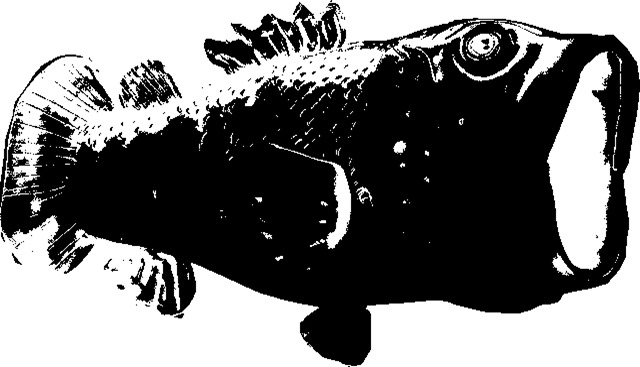I suppose a few would describe themselves as “lunker hunters” … thrill seekers who curl their lip at everyday fishing, whose passion is hunting fish that ignore the cholesterol content of Chironomids and groan as they break the surface for a dry fly.
Not my cup of tea precisely, but as my shortcomings are legion, I shan’t sully their sport.
Paying eight hundred dollars for the location of a world record fish, is another thing entirely …
On the one hand, it’s well documented that anglers are incapable of estimating length and girth, and no matter how many times they cross themselves and insist on “being struck dead,” five pounders are two pounders, and nothing “South of the Mason-Dixon” is anywhere near twelve inches…
… and while we admire the entrepreneurial spirit of the advertisement, we are forced to rely on the owner’s questionable judgment, failing eyesight, and sobriety level when he saw his Moby Dick.
Then we’d have to assume that if we drained a large lake of water, we wouldn’t find anything bigger than the current record, making this fish truly “one in a million” Awesomeness.
Smart fish can get big without any contact with humans. They can live a long life, die, and once their bloated remains sink to the bottom, vanish entirely.
Any beast of size in the ocean is either ate by us or a pack of something smaller. I’d suspect every truly large lake has one or more fish at world record weight, most are fileted by the propeller of some drunken water-skier and never make our radar.
On rare occasion they swallow a toddler in the shallows or wash up dead on some beach and give the locals bragging rights.
Then there’s the “catching” part.
Any fisherman worth his salt will likely admit to catching more than most, but none of us have much experience in catching a specific fish.
“The most recent studies tend to indicate higher rates of dispersal and homing behavior. At Lake Rideau, Canada (1996-1998), fish were displaced from 1 to 10 miles. After 2 weeks, average dispersal distance of bass was only 440 yards. However, 37% of fish eventually returned to their original capture site (all were displaced less than 5 miles). A study at Chesapeake Bay, Maryland (2000) indicated that 64% of largemouth bass had moved at least 0.3 miles within a week. The average final dispersal distance of bass was 6 miles from release sites and 95% were at least 0.3 miles away. Even though fish were displaced 9 to 13 miles from capture areas, 30 to 40% of bass returned to initial capture areas. At Lake Martin, Alabama (2005), bass moved an average of 5 miles from the release site after 10 weeks. After 2 months, no fish were in close proximity to the release site, and all fish tracked over 3 months returned to within the same general area of capture.”
- Todd Driscoll, Texas Fisheries and Wildlife
Assuming that bass move as described, and we “should’ve been there last week,” we’re searching a radius of 0.6 miles of lake for some couch-bound fat kid that wakes around noon …
I’m thinking I’d troll a trot line and hope for snaggage .. and hide the hole that 6/0 treble made with mascara …



















